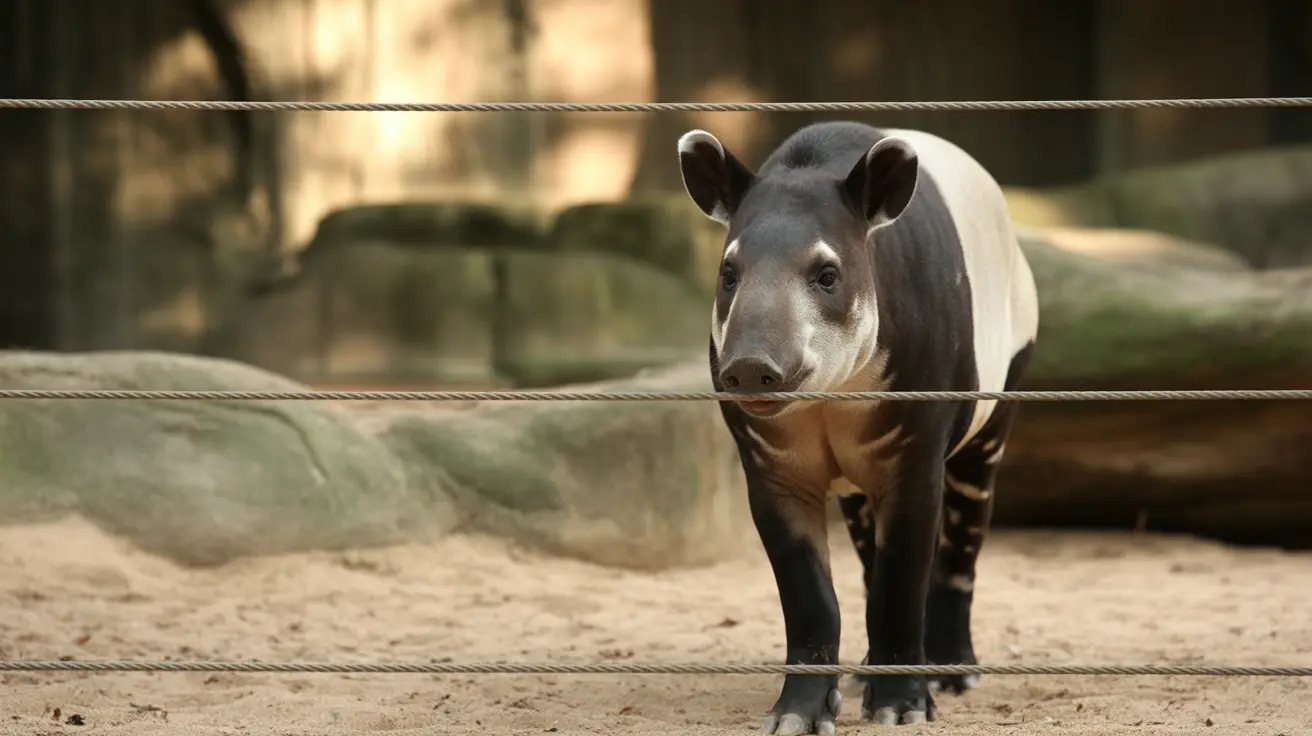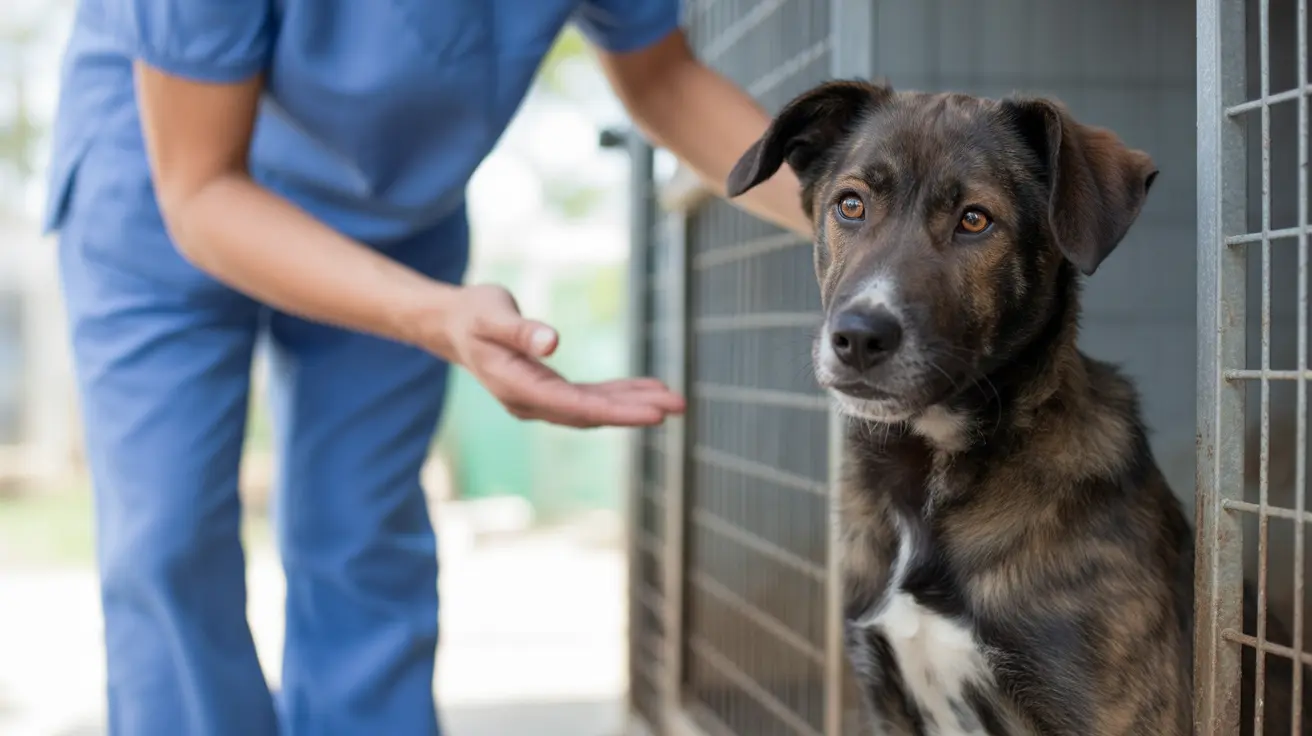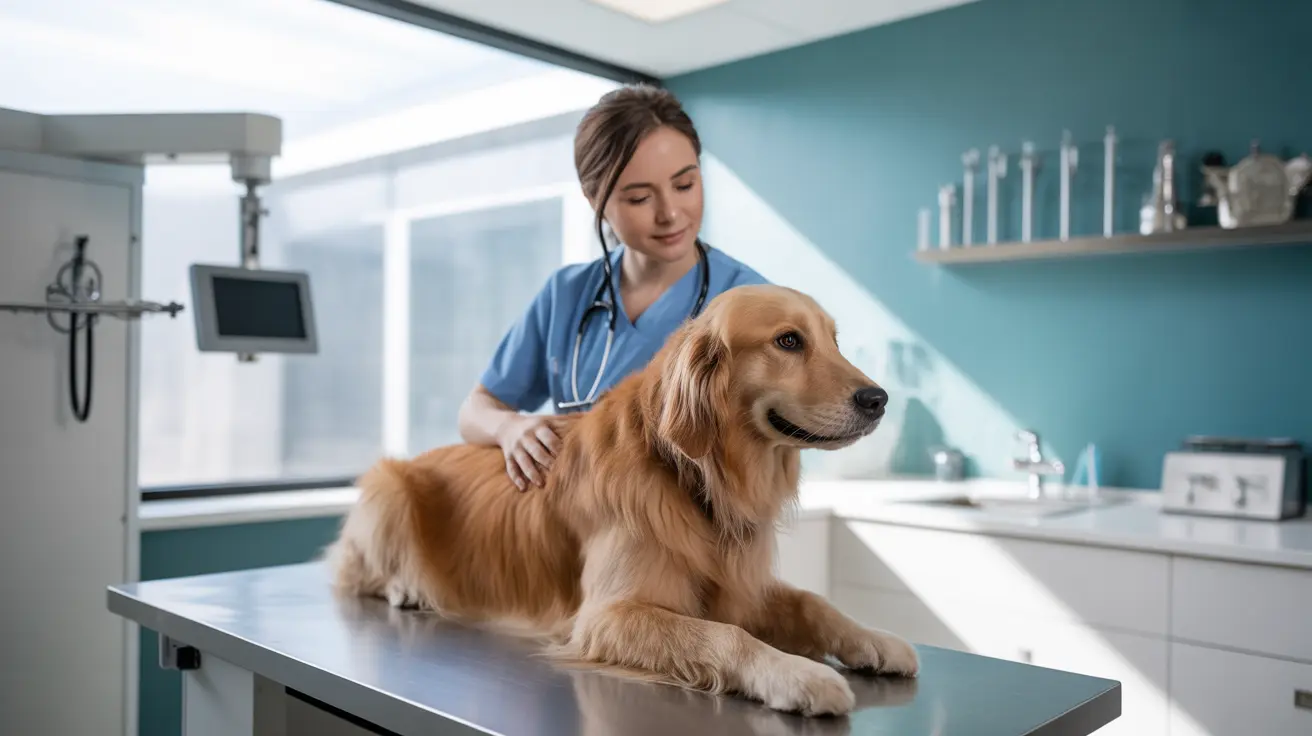Understanding Bad Breath and Excessive Licking in Dogs
Bad breath (halitosis) and excessive licking are common concerns for dog owners. While sometimes these behaviors seem harmless, they can signal underlying health problems that shouldn't be ignored. Let's explore the main causes and what you can do about them.
Common Causes of Bad Breath in Dogs
The most frequent reason for persistent bad breath is dental or periodontal disease. Plaque and tartar build up on teeth, creating a perfect environment for bacteria. This leads to gum inflammation (gingivitis), tooth decay, infections, or even abscesses. Senior dogs and small breeds are especially at risk. Watch for red gums, visible tartar, drooling, trouble chewing, dropping food, or pawing at the mouth.
Sometimes, a sudden change in breath odor comes from oral foreign objects. Sticks, toys, or food can get lodged between teeth or under the gums. These cause pain and foul smells—so if your dog's breath worsens quickly, check their mouth.
Oral tumors, more common in older dogs, may become infected or necrotic. This results in especially bad breath along with pain, drooling, visible masses, bleeding, or facial swelling.
If your dog eats feces (coprophagia), garbage, dead animals, or spoiled food—known as dietary indiscretion—the result is usually a temporary but extremely foul odor.
The Link Between Licking and Bad Breath
Dogs often lick their anal region if their anal glands are irritated or impacted. This transfers a fishy smell from the glands to their mouth and breath. Signs include scooting on the floor and repeated licking at the rear end.
Licking inflamed skin or paws due to allergies, yeast infections, or bacterial skin infections can also introduce malodorous particles into the mouth. If your dog licks themselves excessively—especially paws—it might be worth investigating allergies or skin conditions as a source of both licking and bad breath.
Other Medical Causes of Bad Breath
- Gastrointestinal issues: Vomiting, acid reflux, blockages, or gut bacteria imbalances may cause unusual odors on the breath. Look for vomiting, diarrhea, appetite changes, or abdominal discomfort.
- Kidney disease: Failing kidneys allow waste products to build up in the blood; this produces an ammonia-like or metallic odor. Other symptoms: increased drinking/urination, vomiting, weight loss.
- Liver disease: Toxins accumulate when the liver doesn't function properly; this can make breath smell like rotten eggs or garlic. You might notice yellow gums/eyes (jaundice), lethargy, poor appetite.
- Diabetes: Unregulated diabetes may produce a sweet/fruity (acetone) odor on the breath along with increased thirst/urination and weight loss.
- Respiratory infections: Sinus problems allow bacteria/discharge to accumulate in the mouth/nasal passages causing bad odors.
Diets and Medications That Affect Breath
Certain diets—especially those high in fish-based foods—or supplements like omega-3s may temporarily alter your dog's breath. Some medications (antibiotics/corticosteroids) also cause changes in mouth odor.
When Should You Worry?
- Persistent/worsening foul breath
- Sore/swollen/bleeding gums; loose teeth
- Trouble eating/chewing; dropping food
- Mouth swelling/masses/discharge
- Lethargy; vomiting; diarrhea; appetite changes
- Scooting/frequent rear-end licking; discomfort at rear end
If you spot any of these signs alongside bad breath or excessive licking—especially if home care doesn't help—see your veterinarian promptly.
Caring for Your Dog's Mouth at Home
- Brush your dog's teeth regularly using dog-safe toothpaste (daily is best).
- Offer dental chews/toys/treats with Veterinary Oral Health Council approval.
- Dentally formulated diets use larger kibble to help scrape away plaque during chewing.
You can also try water additives/rinses (they're less effective than brushing), ensure good hydration/diet quality, prevent access to garbage/feces/spoiled food—and provide adequate fiber to support healthy anal gland function.
The Importance of Veterinary Care
If home care doesn't resolve bad breath—or if you see other worrying symptoms—a veterinarian should examine your dog. They may recommend dental cleanings under anesthesia and further testing if they suspect kidney/liver disease, diabetes, tumors or other systemic illnesses are involved.





